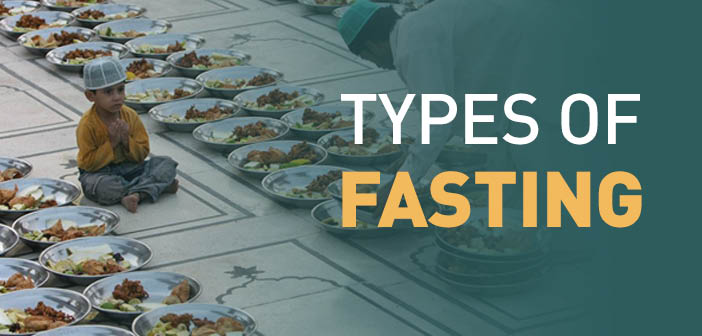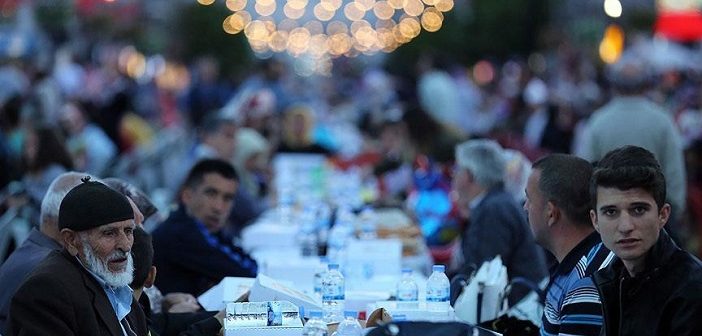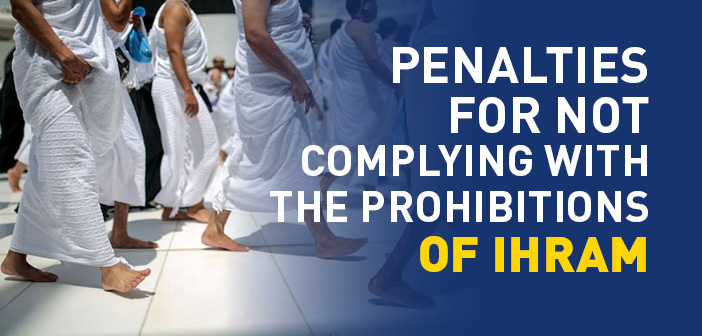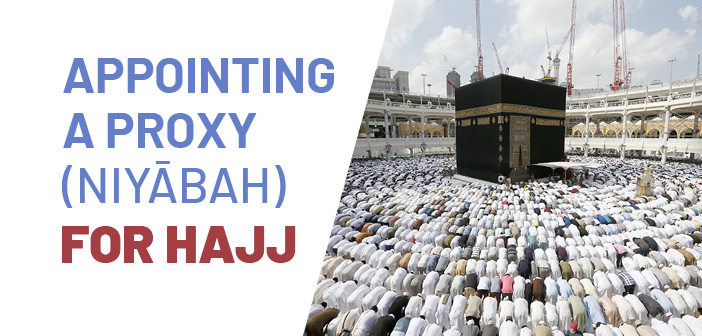
Types of Fasting
What is the fasting in islam? What are the types of fasting? What are the 4 types of fasting?What type of fasting is most effective?
According to the Ḥanafis, fasting is divided into three types farḍ, wājib, and nāfilah as in other acts of worship. The concept of “wājib” in the other three schools includes the categories of farḍ and wājib amongst the Ḥanafis. Nāfilah is the general name of religious duties other than farḍ and wājib.
A) Fard (Obligatory) Fasting
According to all schools, the first thing that comes to mind in regards to obligatory fasting is Ramadan fasting, which is a prescribed and known fast. If it cannot be observed with or without an excuse, it is obligatory to make it up later.
In like manner, according to all schools, fasting that is observed as atonement for Ramadan fasting is also considered farḍ. Fasting as atonement includes the fasting as an atonement for unobserved fasts during the month of Ramadan, which is invalidated intentionally, the atonement of ẓihār, accidentally or mistakenly killing someone, shaving before its prescribed time while in the state of iḥrām during the pilgrimage, and fasting as atonement for broken oaths. Since fasting of atonement means punishment or compensation for an error, it is not an obligation determined at the beginning, but an obligation that may arise in case of a deficiency that leads to it. For this reason, Ramadan fasting is described as “specified (muʿayyan) obligatory” and the other fasting is indicated as “unspecified (ghayr muʿayyan) farḍ”.
Making up Ramadan fasting can be observed on any other permissible day after Ramadan. However, considering Imam Shafiʿi’s view that the missed Ramadan fast should be made up in the same year, it would be appropriate to attempt to make up the obligatory fast as soon as possible after the month of Ramadan.
B) Wajib Fasting
According to the Ḥanafis, observing a votive (nadhr) fast and making up an untimely broken voluntary fast that has already started are wājib. A person making it an obligation to perform an act of worship that he is not religiously responsible for is called a “vow (nadhr)”. If the day of fasting is determined while making a vow, for instance vowing to fast on such and such days of such and such month, it becomes a specified (muʿayyan) wājib, and the fast must be observed on that determined day. Since the votive fasting of the iʿtikāf will be held on a certain day, it is included in the scope of a specified (muʿayyan) fast. If the day of fasting has not been determined, it becomes an unspecified (ghayr muʿayyan) wājib, and it can be observed on any day when it is permissible to fast.
According to the Malikis, the Shafiʿis, and the Hanbalis, observing the votive fasting is a farḍ.
When a nāfilah fast is broken untimely, it is wājib to make it up according to the Ḥanafis and it is farḍ according to the Malikis. According to Imam Shafiʿi and another narration from Imam Malik, it is not required to make up a fast for an untimely broken supererogatory fast.
C) Nafilah (Supererogatory) Fasting
Such fasting, which is observed in addition to farḍ and wājib types of fasting, is generally called supererogatory fasting. Supererogatory fasting can be observed on any day permissible to fast. However, fasting on some days is considered more virtuous, and fasting on these days is considered sunnah or mandūb. These are the days when the Prophet (saw) himself frequently fasted and also encouraged the believers to fast.
Days when Fasting is Mandūb:
1) Fasting of Dawūd (as): The most virtuous of voluntary fasts is to fast every other day. The Messenger of Allah (saw) said: “The most virtuous fast is the one of Dawūd (as). Dawūd (as) used to fast for one day and take a break the following day.” When Abdullah Ibn Umar said, “I have the strength to do more than that”, the Prophet said, “There is nothing better than this.”[1]
2) Fasting for three days in every lunar month: It is recommended to fast especially on the 13th, 14th, and 15th days of each lunar month. According to the lunar calendar, these days are called “ayyām biyḍ (white days)”. According to what was narrated from Abu Dharr (ra), the Messenger of Allah (saw) said, “When you fast for three days in every month, fast on the 13th, 14th, and 15th days.”[2] Aisha (r. anha) reported that the Prophet (saw) fasted three days in every lunar month.[3] According to the Malikis, it is makrūḥ to intend specifically to fast on “ayyām biyḍ (white days)”.
3) Fasting on Mondays and Thursdays: According to what is narrated from Usāma ibn Zayd (ra), the Prophet (saw) used to fast on Mondays and Thursdays. When he was asked why he preferred these days, he said: “The deeds of the servants are presented to Allah on Mondays and Thursdays. I like to fast while my deeds are presented to Allah.”[4]
4) Fasting in the month of Shawwāl: According to the lunar calendar, the month that comes after Ramadan is Shawwāl. It is mustaḥab to fast for six days during this month. Although they can be observed on separate days, it is more virtuous to observe them one after the other right after the Eid. If making up a fast, votive fast, etc. is observed on these days, the same reward will be obtained. In a hadith narrated by Abu Ayyub, it is stated, “Whoever fasts in Ramadan and then adds six days from Shawwāl, it will be as if he fasted the whole year.”[5] It has been narrated that Ramadan fasting is equivalent to ten months and six days of Shawwāl fasting is equivalent to 60 days, with ten times the reward for one day, so that the whole year will be considered to have been spent fasting.[6] For it is stated in the Quran, “Whoever shall come before Allah with a good deed will gain ten times the like thereof…”[7] Moreover, the fact that women, who have missed Ramadan fasting due to menstruation and who fast for six days in the month of Shawwāl, on average can make up those missed days and also earn this reward demonstrates the appropriateness of these six days.
5) Fasting on the day of Arafa: It is mustaḥab for those who are not performing the pilgrimage to fast on the ninth day of Dhu’l-Hijjah. The Messenger of Allah (saw) said, “It is hoped from Allah that fasting on the day of Arafa will cover the sins of one year before and after that.”[8]
6) Fasting in the month of Dhu’l-Hijjah: It is recommended to fast in the first nine days of Dhu’l-Hijjah. However, it is considered makrūḥ for those who are on a pilgrimage to fast on the day of Arafa, as it may cause fatigue. Hafsa (r. anhā) said, “The Prophet (saw) never abandoned four things: Fasting on the day of Ashura, fasting on the first nine days of Dhu’l-Hijjah, fasting for three days of each month, and performing two cycles of prayer before the obligatory cycles of the dawn prayer.”[9]
7) Fasting on the day of Ashura: The tenth day of Muharram is called the “day of Ashura”. It is recommended to fast not only on this day but also the day before or the day after or all three days. According to what is reported from Ibn Abbas (ra), when the Messenger of Allah (saw) migrated to Medina, he saw the Jews fasting on the day of Ashura and asked about the meaning of this fast, that is, why it was observed. When Jews told him that it was a great day when Allah saved Moses and the Children of Israel from their enemies on this day, and that is why Moses fasted on this day, he (saw) said, “I am closer to Moses than you are,” and ordered fasting on this day.[10] It is reported that the Arabs practiced the Ashura fast during the pre-Islamic period, and the Prophet (saw) ordered the observation of this fast before the Ramadan fast was made obligatory.[11] As a matter of fact, later, when Ramadan fasting was made obligatory, the fasting of Ashura no longer became an obligation, but it was instead recommended and continued therefore as a mustaḥab or sunnah.
8) Fasting in the ḥarām months: It is mandūb to fast on Thursdays, Fridays, and Saturdays of the “ḥarām months” which are Dhu’l-Qaʿdah, Dhu’l-Hijjah, Muḥarram and Rajab.
9) Fasting in the month of Shaʿbān: Fasting in Shaʿbān is considered mustaḥab. Aisha said, “The Prophet did not fast in any month more than he did in the month of Shaʿbān. He used to fast almost the entire month of Shaʿbān.”[12]
D) The Days when Fasting is Prohibited
According to the Ḥanafis, makrūḥ fasts are of two types: Makrūḥ taḥriman and makrūḥ tanzihan.
1) Fasting which is makrūḥ taḥriman: According to the Ḥanafis, fasting on the first day of Eid al-Fitr and four days of Eid-al-Adha is makrūḥ taḥriman. This is because the first day of Ramadan is a kind of collective ifṭār, eating, drinking, and festive day. Eid-al-Adha is also the feast day when sacrifices are offered. The Messenger of Allah (saw) stated that the days of tashrīq are the days of eating, drinking, and remembering Allah.[13] However, a person who fasts on these days is considered a sinner, although his or her fast is considered valid. However, when such a fast is broken, there is no need to make up for it for something unlawful has been committed. According to another view, it should be made up.
According to the Malikis, fasting on the Day of Fast breaking, the Day of Sacrifice, and the two days following the Day of Sacrifice is prohibited except in the case of someone who, before performing the major pilgrimage, first completes the minor pilgrimage, then remains in the sacred Meccan precinct until the days of hajj and, while still there, reenters a state of iḥrām for the hajj, as well as in the case of someone who performs both the umrah and the hajj with a single ritual consecration. In these two cases, it is permissible to fast the two days following the Day of Sacrifice. As for fasting on the third day following the Day of Sacrifice, it is deemed undesirable. According to the Shafiʿis, fasting on the Day of Fast breaking, the Day of Sacrifice and the three days following the Day of Sacrifice is not only forbidden but invalid as well. According to the Hanbalis, fasting is forbidden on the Day of Fast breaking, the Day of Sacrifice, and the three days following the Day of Sacrifice except in the two cases described above in connection with the Malikis’ ruling on this matter.[14]
2) Fasting which is makrūḥ tanzihan: Fasting only on the day of Ashura, according to some, fasting only on Friday, fasting only on Saturday, and fasting on the days of Nawrūz and Mihrajān (spring and autumn festivals) is considered makrūḥ tanzihan. However, if one fasts on these days because they coincide with the days that one would have fasted anyway out of routine, then there is no harm in doing so. The fact that it is makrūḥ to devote only Friday to fasting is based on the following hadith, “Do not set aside only Friday night among the nights for worship. However, if one of you fasts, as usual, this is an exception.”[15]
It is also makrūḥ to fast for two or three consecutive days without breaking the fast at night. This is called “wiṣāl fasting.” It was narrated from Aisha that she said, “The Messenger of Allah forbade the believers to fast continuously (to practice wiṣāl fasting), out of mercy to them. When they said to him, “But you practice wiṣāl?” He said, “I am not similar to you, for my Lord gives me food and drink.”[16]
It is makrūḥ to fast on the day of shak. If there is doubt as to whether the day after the twenty-ninth of Shaʿbān belongs to the month of Shaʿbān or to the month of Ramadan due to reasons such as cloudy weather, then that day is called the “day of doubt (yawm al-shak)”. However, if the sky is clear and the crescent is not seen, this day is not considered the day of shak.
According to the Ḥanafis, fasting on the day of shak with the intention of Ramadan or any other obligatory fast is makrūḥ. It is even makrūḥ to fast for one or two days before the month of Ramadan. The Messenger of Allah (saw) said, “Do not meet Ramadan by fasting a day or two before. However, if a person fasts these days because it is his custom, he should keep it.”[17] The reason for this reprehensibility is the fear of adding to the Ramadan fast. There is no reprehensibility in fasting on the day of shak with the intention of voluntary fasting unrelated to any other fasting. This is because if the day of shak is included in Ramadan, this fast is considered a Ramadan fast, otherwise, it will remain as a nāfilah. According to the Shafiʿis, it is prohibited to fast on the day of shak.
On the day of shak, if one makes the intention saying “if it is the month of Ramadan, then I will be regarding it as fasting, otherwise I will be regarding it as non-fasting”, he or she will not be considered to have fasted because the intention to fast must be based on certitude.
According to the Ḥanafis, even if it is makrūḥ, if one intends to fast on the day of shak, and if it is later found out that it is Ramadan, this fast is considered a Ramadan fast. Otherwise, it will be considered a voluntary fast. However, if it is intended for a wājib fast, it will be valid in the name of that wājib. However, if the day remains doubtful, the intended wājib fast will not be valid on behalf of that wājib because there is a possibility that it may be a day from Ramadan.
It is more virtuous for Muslims who are knowledgeable about the above-mentioned provisions about the day of shak to fast without letting people know, and for other people to avoid situations that invalidate the fast until the sun reaches the meridian due to the possibility of clarification of the situation at a later time.
Fasting on the day of shak is more virtuous for a person who fasts throughout the month of Shaʿbān or fasts in the last three days of the month of Shaʿbān.
According to the Ḥanafis, it is makrūḥ tanzihan for a woman to fast without her husband’s permission. Her husband can also make her break this fast. The woman then makes up for it when her husband gives her permission or at times when her husband is not present. The Prophet said, “It is not lawful for a woman to fast without his permission while her husband is with her.”[18]
However, if her husband does not need his wife, it is permissible for a woman to observe voluntary fasting. If the husband is far from the woman’s place or if he has entered the state of iḥrām for hajj or umrah, he cannot prevent his wife from fasting voluntarily. For in such cases, it is not possible to benefit from the sexual aspects of the spouse.
According to the Shafiʿis and the Malikis, a married woman is forbidden to perform a supererogatory fast without her husband’s permission or without knowing whether he agrees or not; this prohibition applies unless he is not in need of her because he is absent, for example, in a state of iḥrām, or secluding himself in the mosque for iʿtikāf. The Hanbalis hold that as long as a woman’s husband is present, she may not fast without his permission even if he is in a condition that would prevent him from having sexual relations with her such as being in iʿtikāf.
A person who works for someone else for a wage or salary cannot do voluntary fasts without the employer’s permission if it will interfere with his work. However, if there is no such harm, he can fast regardless of the employer’s permission.
It is permissible for a person who is indebted for fasting days for the month of Ramadan to perform voluntary fasts on days permissible to fast except during the month of Ramadan, which is specifically reserved for that year’s Ramadan.
It is makrūḥ for pilgrims to fast on the 8th (tawriyah) and 9th (arafah) days of Dhu’l-Hijja if they are likely to become weak and tired if they fast. This is because performing the pilgrimage in a fit and lively state is better than performing a voluntary fasting before performing the pilgrimage.[19]
[1] Muslim, Ṣiyām, 192, 203; Ibn Maja, Ṣiyām, 43; al-Nasā’ī, Ṣiyām, 76, 77; Aḥmad ibn Ḥanbal, II, 225.[2] Al-Bukhari, Anbiya, 37, Ṣawm, 56, 58; Muslim, Ṣiyām, 181; Aḥmad ibn Ḥanbal, II, 158, 188, 189, 194.[3] Al-Ṣan’ānī, Subul al-Salām, II, 168.[4] Abū Dawūd, Ṣawm, 60; Ibn Maja, Ṣiyām, 42.[5] Ibn Maja, Ṣiyām, 33; al-Tirmidhī, Ṣawm, 52.[6] Al-Zuhaylī, al-Fiqh al-Islami wa Adillatuh, Damascus 1405/1985, II, 589.[7] Al-Anʿām, 6: 160.[8] Aḥmad ibn Ḥanbal, V, 196, 297, 304, 307, VI, 128.[9] Al-Nasā’ī, Ṣiyām, 83; Aḥmad ibn Ḥanbal, Musnad, VI, 287.[10] Al-Bukhari, Ṣawm, 69, Anbiya, 24; Ibn Maja, Ṣiyām, 41; Malik, Muwaṭṭā’, Ṣiyām, 128.[11] Muslim, Ṣiyām, 116.[12] Muslim, Ṣalāh, 176; Abū Dawūd, Ṣawm, 58; al-Tirmidhī, Ṣawm, 36; al-Nasā’ī, Ṣiyām, 34-36, 70; Ibn Maja, Ṣiyām, 4, 30; Aḥmad ibn Ḥanbal, VI, 80, 89, 294, 300, 311.[13] See al-Bukhari, Ṣawm, 67; Abū Dawūd, Ṣawm, 50.[14] Jaziri, ibid, p. 745.[15] Al-Shawkanī, ibid, IV, 249.[16] See al-Bukhari, Ṣawm, 49, Tamannī, 8; Muslim, Ṣiyām, 55-58; Abū Dawūd, Ṣawm, 24; al-Darimī, Ṣawm, 14.[17] Al-Bukhari Savm, 5, 11, 14; Muslim, Ṣiyām, 21; Abū Dawūd, Ṣawm, 10; al-Tirmidhī, Ṣawm, 2, 4, 38.[18] Al-Bukhari, Nikāḥ, 84, 86; Muslim, Zakāt, 84; Abū Dawūd, Ṣawm, 73.[19] Ibn al-Humām, ibid, I, 53 ff.; Ibn Abidīn, ibid, II, 114 ff.; al-Shurunbulālī, ibid, p. 106, 107.
Source: Basic Islamic Principles (ilmiḥal) According to the Four Sunni Schools With Evidence From The Sources of Islamic Law, Prof. Hamdi Döndüren, Erkam Publications











